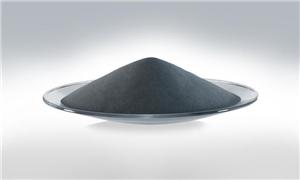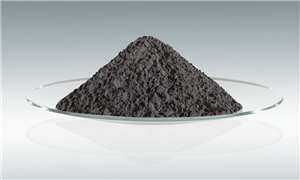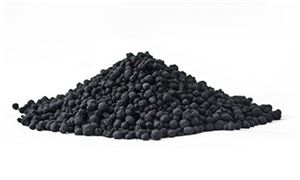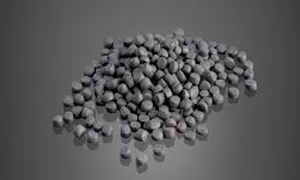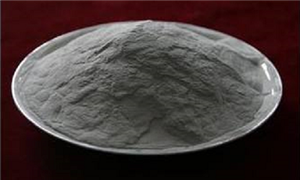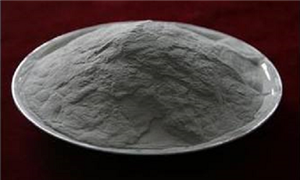- Home
- >
- News
- >
- Company news
- >
- Titanium Powder: The Future of Advanced Manufacturing and Industry Applications
Titanium Powder: The Future of Advanced Manufacturing and Industry Applications
Why Titanium Powder?
Titanium (Ti) is widely known for its exceptional strength-to-weight ratio, making it indispensable in applications where lightweight and durable materials are essential. When titanium is processed into powder form, its versatility and utility multiply. Here are some key advantages of titanium powder:
Lightweight: Titanium is about 45% lighter than steel but just as strong.
Corrosion Resistant: Titanium's natural oxide layer protects against rust and corrosion.
Biocompatible: Ideal for medical implants and devices.
Heat Resistant: Performs well under extreme temperatures, essential for aerospace and automotive parts.
Versatile: Suitable for metal injection molding (MIM), 3D printing, and thermal spray coatings.
Key Applications of Titanium Powder
1. Aerospace and Aviation
Titanium powder is critical in manufacturing lightweight components like turbine blades, structural parts, and engine components. Additive manufacturing (AM) using titanium powder allows for complex, high-strength geometries that reduce aircraft weight and improve fuel efficiency.
2. Medical and Dental Implants
Due to its biocompatibility, titanium powder is used to create orthopedic implants, dental implants, and prosthetics. The precision offered by 3D printing allows for patient-specific implants, reducing recovery times and increasing comfort.
3. Automotive Industry
High-performance vehicles benefit from titanium's lightweight strength. Titanium powder is used to create durable parts such as exhaust systems, connecting rods, and other components, helping to improve performance and fuel efficiency.
4. Additive Manufacturing (3D Printing)
Titanium powder is one of the preferred materials for 3D printing due to its ability to create intricate designs that are impossible with traditional manufacturing. Industries such as aerospace, medical, and even fashion are utilizing titanium 3D printing for customized, high-performance parts.
5. Metal Injection Molding (MIM)
MIM technology enables mass production of small, complex titanium components with high precision. This process is used in industries like electronics, aerospace, and defense for parts that require superior strength and accuracy.
Production of Titanium Powder
There are several methods for producing high-quality titanium powder:
Gas Atomization: Liquid titanium is atomized with high-pressure gas jets to produce fine powder particles. This method is ideal for producing spherical particles for 3D printing.
Plasma Atomization: A high-temperature plasma melts titanium wire, creating droplets that solidify into spherical powder particles, ideal for aerospace and medical applications.
Hydride-Dehydride (HDH) Process: Titanium is turned into a brittle hydride, ground into powder, and then dehydrogenated. This method is cost-effective for MIM applications.
Sponge Titanium Milling: Titanium sponge is mechanically milled into powder, offering a lower-cost alternative for some industrial applications.
Global Market Trends for Titanium Powder
The titanium powder market is poised for growth due to increasing demand for lightweight materials in key industries:
Aerospace Boom: As air travel recovers post-pandemic and fuel efficiency becomes critical, titanium powder demand is rising.
Medical Advancements: The growing demand for customized medical implants is driving the use of titanium powder in 3D printing.
Sustainable Manufacturing: Titanium's recyclability aligns with the global shift toward sustainable manufacturing practices.
Technological Innovations: Advancements in powder production and 3D printing technology are expanding titanium powder applications.
Market Statistics
The global titanium powder market is expected to grow at a CAGR of 7.5% from 2023 to 2030.
The aerospace and defense sectors account for over 40% of the titanium powder market demand.
Asia-Pacific leads in production, while North America and Europe dominate consumption due to advanced aerospace and medical industries.
Choosing the Right Titanium Powder Supplier
When sourcing titanium powder, consider the following factors:
Purity Levels: High-purity powder is essential for aerospace and medical applications.
Particle Size Distribution: Ensure the powder meets your specific manufacturing process requirements.
Certification Standards: Look for ISO certifications and industry-specific standards like ASTM and AMS.
Consistent Quality: Choose suppliers known for reliable quality and repeatability.
Conclusion
Titanium powder is transforming the way industries approach design and manufacturing, offering unparalleled performance in aerospace, medical, and additive manufacturing applications. As technological advancements continue, the potential for titanium powder in cutting-edge industries is limitless. Businesses that adopt titanium powder today are positioning themselves for a competitive, innovative future.
Ready to source high-quality titanium powder for your manufacturing needs? Stay ahead of the curve by partnering with trusted suppliers and leveraging the benefits of this remarkable material.

